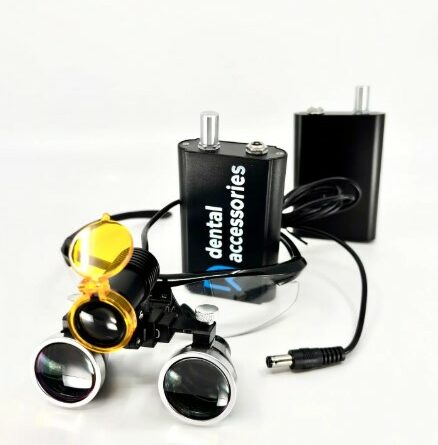How to Choose the Right Dental Loupes: A Guide for Dentists and Hygienists
In the field of dentistry, precision and clarity are essential. The right dental loupes can significantly enhance visual acuity, posture, and overall efficiency. With numerous options available, selecting the best loupes for your specific needs can be overwhelming. This guide will walk you through the critical factors to consider when purchasing dental loupes to ensure optimal performance and comfort.
Why Dental Loupes Are Essential
Dental professionals rely on their vision to perform intricate procedures. Magnification loupes improve visibility, reduce strain, and enhance precision. The benefits of using dental loupes include:
- Enhanced visualization of small details
- Better ergonomics, reducing neck and back strain
- Increased accuracy in dental procedures
- Reduced eye fatigue, allowing for longer working hours
Key Factors to Consider When Choosing Dental Loupes
1. Magnification Power
Dental loupes come in various magnification levels, typically ranging from 2.5x to 6.0x. The right magnification depends on your specific dental procedures and experience level:
- 2.5x magnification – Ideal for beginners, offering a wider field of view and depth perception.
- 3.0x – 3.5x magnification – Perfect for general dentistry, balancing magnification and visibility.
- 4.0x – 6.0x magnification – Best suited for specialists performing fine-detail work, such as endodontics or microsurgery.
2. Field of View and Depth of Field
- Field of view (FOV) refers to the total area visible through the loupes.
- Depth of field (DOF) determines how much of that area remains in focus at a given time.
Higher magnification generally results in a smaller field of view and a shallower depth of field. It’s crucial to strike a balance based on your needs.
3. Working Distance
Your working distance is the gap between your eyes and the patient’s mouth. This distance affects posture and comfort. Common working distances include:
- Short (11″–14″) – Suitable for professionals who work close to their patients.
- Standard (14″–18″) – Ideal for most general dentists and hygienists.
- Long (18″–22″) – Beneficial for taller professionals or those who prefer an upright posture.
4. Frame Material and Design
The frame of your loupes plays a crucial role in comfort and durability. Options include:
- Titanium frames – Lightweight and highly durable.
- Plastic frames – More affordable but may lack durability.
- Custom-fit frames – Provide enhanced comfort and balance.
5. TTL (Through-The-Lens) vs. Flip-Up Loupes
- TTL Loupes: The lenses are integrated directly into the frame, providing a wider field of view and lighter weight. They offer better optics but cannot be adjusted.
- Flip-Up Loupes: These loupes allow users to adjust the angle of magnification and flip them up when not in use. They are heavier but offer more flexibility.
6. Weight and Comfort
Lighter loupes reduce strain on your nose and ears. Comfort is crucial for prolonged usage. Try on multiple models to find the best fit before purchasing.
7. Optical Quality and Lens Coatings
High-quality optics ensure clarity and color accuracy. Consider lenses with anti-reflective coatings to minimize glare and enhance visibility.
8. LED Headlights Compatibility
Many dental professionals pair their loupes with LED headlights for enhanced illumination. When choosing loupes, check for compatibility with lighting systems.
9. Customization and Adjustability
Some manufacturers offer custom-fit loupes, tailored to your specific measurements. Adjustable nose pads and temple arms can improve comfort.
10. Brand and Warranty Considerations
Invest in reputable brands known for quality and durability. Consider warranty policies and customer service before making a final decision.
Best Dental Loupes Brands
Some of the most trusted brands in the dental loupe industry include:
- Orascoptic – Known for superior optical quality and ergonomic designs.
- SurgiTel – Offers innovative ergonomic solutions with lightweight frames.
- Designs for Vision – A leader in high-definition optics and precision lenses.
- Q-Optics – Specializes in lightweight, comfortable loupes with a modern design.
- LumaDent – Provides high-quality, affordable loupes and lighting systems.
How to Test and Purchase the Right Dental Loupes
Before purchasing:
- Try different models – Visit a dental conference or showroom to test loupes firsthand.
- Consider your working style – Choose magnification and working distance based on your specialty.
- Check for warranties – Ensure the manufacturer provides a solid warranty and repair options.
- Consult colleagues – Ask peers about their experiences with specific brands.
Conclusion
Investing in the right dental loupes is essential for enhancing precision, maintaining proper posture, and improving overall efficiency in dental practice. By considering magnification, working distance, frame design, and optical quality, you can make an informed choice that supports long-term professional success.




